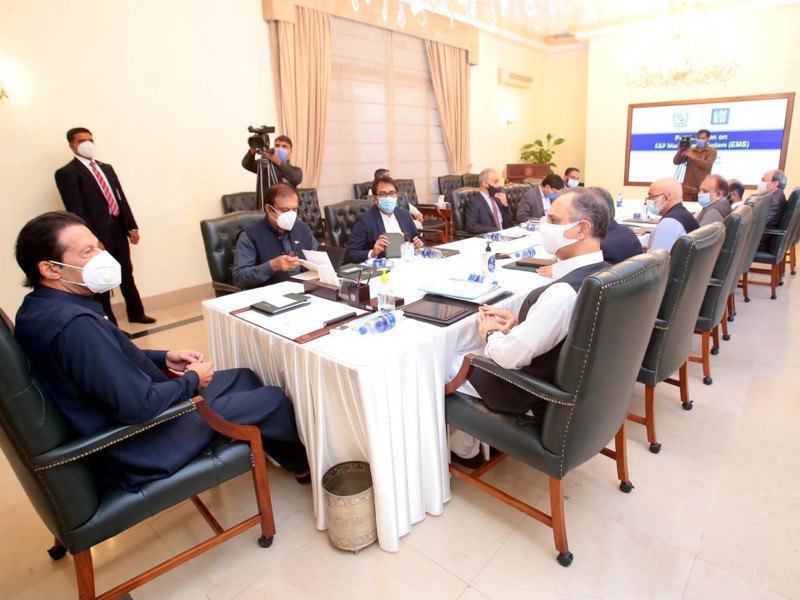
Provinces have backed Sindh’s proposal for representation in the Oil and Gas Regulatory Authority (Ogra) in line with the National Electric Power Regulatory Authority (Nepra) model.
At present, all provinces have representation in Nepra. However, the federal government appoints members and chairman of Ogra and provinces have no say in it. Sindh has proposed that provinces should be given representation in Ogra as well.
Following this, two meetings were held. In a meeting held during the ongoing month, it was informed that the Council of Common Interests (CCI), in its 42nd meeting, considered the proposal of Sindh government titled “Amendment to the Oil and Gas Regulatory Authority (Ogra) Ordinance, 2002” and directed the Petroleum Division to explore the possibility of including provincial representatives in Ogra in consultation with the provincial governments, and submit a report.
A representative of the Ministry of Law and Justice, in that connection, highlighted that it was a policy decision, which should be made by the Petroleum Division.
Though Article 172 says that there is joint ownership, the control rests with the federal government. According to the law, the legislative authority is with the federal government.
For the subject matter, in Articles 97 and 98, it is absolutely clear that where there is legislative power, there will be executive authority. Now, if there is a need to change the composition of Ogra, it will be decided by the Petroleum Division keeping in view its technical and practical aspects, according to the law ministry.
Energy adviser to Khyber-Pakhtunkhwa chief minister agreed with the Sindh government’s proposal and pointed out that if any member had to be included in Ogra, he should have some technical, professional and educational qualification, and according to that qualification, nominees should be invited from all the provinces rather than only from Islamabad.
Furthermore, the adviser drew attention of meeting participants to Article 172(3) and said that the ownership of minerals, oil and gas within a province vested jointly and equally with the province and the federal government.
He quoted former Senate chairman’s ruling passed on January 23, 2018, which provided for equal ownership of minerals, oil and gas.
The adviser explained that issues of oil and gas fell under the Federal Legislative List Part-2, which was under the CCI and all the provinces were part of the CCI and on analogy the provinces may have representation in Ogra.
He agreed with the Ministry of Law and Justice’s interpretation to the extent of legislation, which was the federal government’s domain, but in administrative and regulatory matters, both had equal say. Nepra was example of an entity which was running successfully with provincial representation, he said.
Punjab energy secretary supported the viewpoint of K-P energy adviser and added that a majority of oil and gas consumers were in Punjab and gas prices determined by Ogra had an impact on gas consumers of the province.
Prices of LPG/CNG determined by Ogra sometimes clash with the interests of provinces whereas the latter have no say in tariff determination by the regulator due to a lack of provincial representation in the authority.
Regarding Article 172(3), they agreed with the point of view of Cabinet Division that the director general petroleum concession, being the upstream regulator, could not be equated with Ogra, which was a federal entity for the protection of public interest and effective decision-making through the participation of all stakeholders.
Sindh representative also supported the stance of K-P and said that Article 154(1) and the Federal Legislative List Part-2 provided that the institutions dealing with similar issues were within the supervisory control of the CCI.
Provinces being part of the council only exercise their control as well as gather information related to these institutions if they are actively part of such institutions through representation in the top management.
Therefore, he said, they had moved this summary as due to provincial representation, the performance of Ogra would be enhanced with smooth and effective coordination.
The federal government, in consultation with the provinces, could define the representation criteria, he said.
Balochistan representative agreed with the proposal of provincial representation in Ogra and proposed that the existing structure may be changed in a manner that with the current technical members, provincial members may be added to make performance of the regulatory authority more effective.
An Ogra official explained the current structure and role of the authority, saying that there were three highly technical members and one chairperson, who were nominated on the basis of merit through open competition on a national basis.
Ogra basically determines Sui companies’ revenue requirements and issues licences. The general public is made part of the decision-making by holding public hearings in all the provincial capitals, said the Ogra official.
Ogra also has a complaint resolution system. Further proposals may be taken into consideration on how the provinces can give their feedback to Ogra for further enhancing its performance.
Published in The Express Tribune, November 20th, 2020.
Like Business on Facebook, follow @TribuneBiz on Twitter to stay informed and join in the conversation.


















COMMENTS
Comments are moderated and generally will be posted if they are on-topic and not abusive.
For more information, please see our Comments FAQ